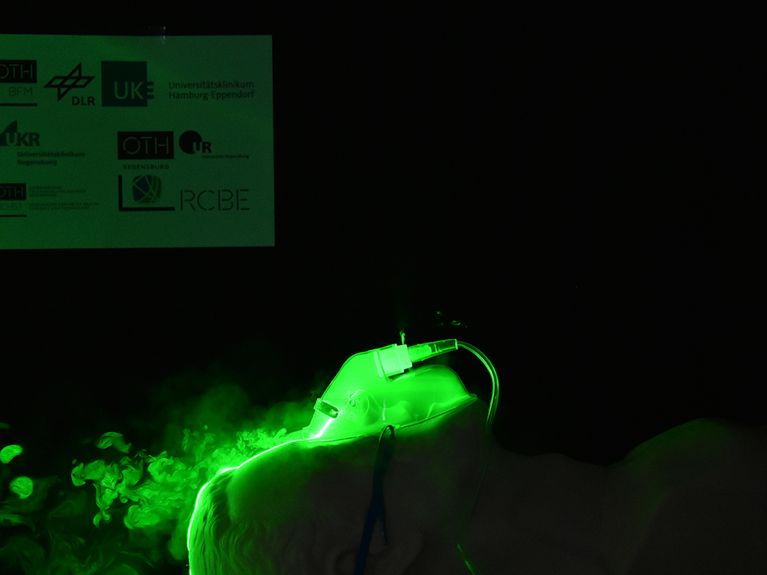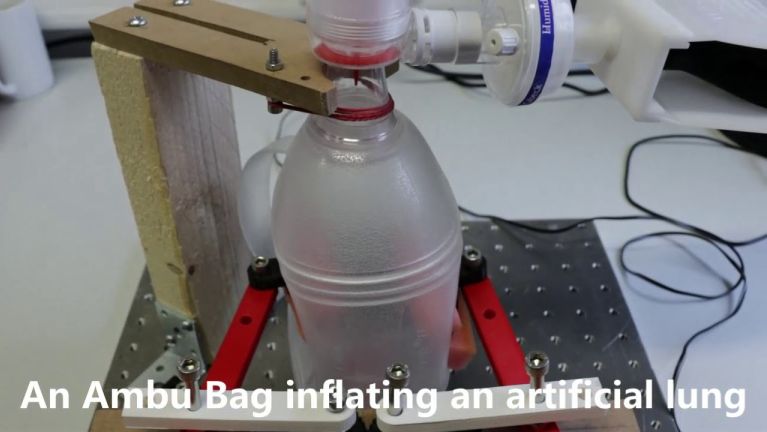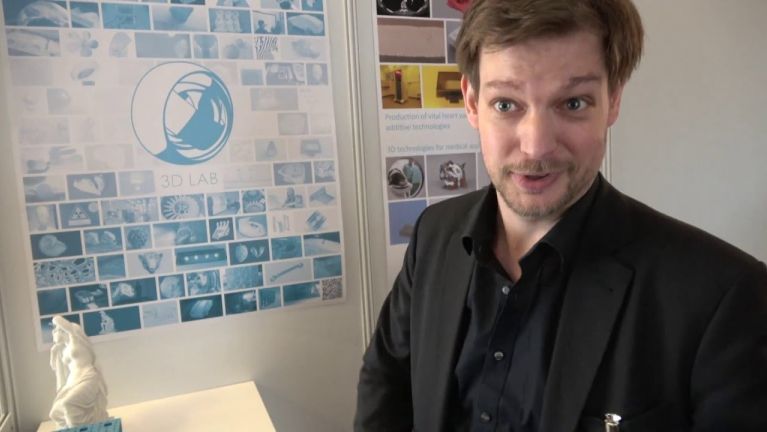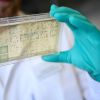Simple life savers
The coronavirus is making us inventive: how German universities are helping to master the pandemic with small innovations.
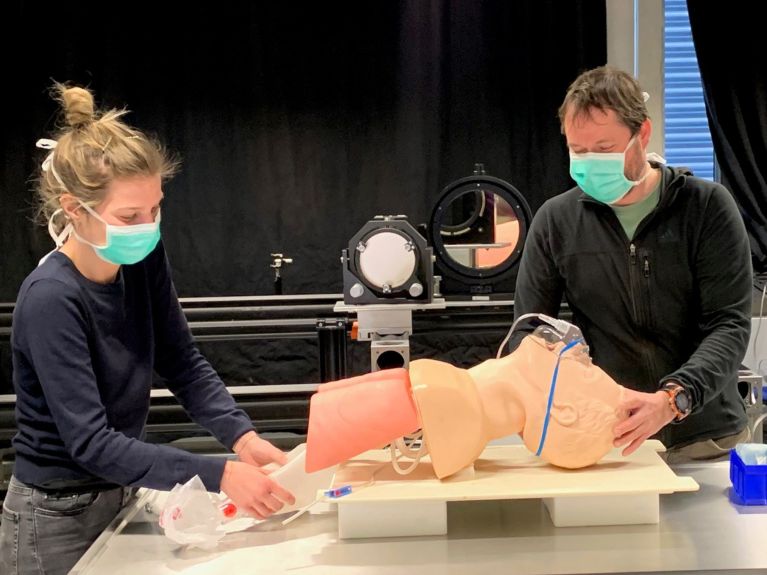
Research takes time. In the coronavirus crisis, scientists at German universities are showing they can do it differently: at top speed, they are developing innovations that could make the decisive difference in the fight against the pandemic.
Dieses YouTube-Video kann in einem neuen Tab abgespielt werden
YouTube öffnenThird party content
We use YouTube to embed content that may collect data about your activity. Please review the details and accept the service to see this content.
Open consent formUniversity of Marburg: the Breathing Project
The Breathing Project needed barely two weeks from drawing board to ready-to-use product. The idea of the 30 researchers at the University of Marburg: low-cost ventilators. Two versions were produced. One makes use of devices for sleep apnoea patients that are widely available in Germany by making easy technical adjustments to them. Though not suitable for emergency patients, they are can be helpful in a later phase. The second solution is based on “Ambu bags” for first aid: simple breathing masks, connected by a tube to a small balloon that is compressed by hand. Among other things, the researchers used items from the hardware shop to construct an apparatus that mechanically compresses the balloon. “This can be made in a car repair shop in any country in the world”, says the physics professor Martin Koch.
Dieses YouTube-Video kann in einem neuen Tab abgespielt werden
YouTube öffnenThird party content
We use YouTube to embed content that may collect data about your activity. Please review the details and accept the service to see this content.
Open consent formTU Berlin: spare parts from the 3D printer
Sometimes human lives depend on a tiny valve: if the small part is worn out, the entire ventilator is useless. Against this background, the EU Commission asked 3D experts for help. Ben Jastram and his colleagues at the 3D lab of the Technical University (TU) Berlin responded. “In theory, it’s possible to use 3D printing to manufacture spare parts and bridge bottlenecks.” The TU has teamed up with the Fraunhofer-Institute for Applied Polymer Research, the Charité hospital, and several companies to form an initiative. The partners are in contact with several thousand 3D systems worldwide, so that the parts could be manufactured wherever needed.
OTH Regensburg: protection against infection
Unavoidable contact: doctors and nursing staff have a particularly high risk of becoming infected with the Sars-CoV-2 virus. Intubating and breathing represent particular dangers - but where exactly? What happens when patients are switched from mask ventilation to the tube? Or when they cough? A team of researchers from the OTH Regensburg is investigating such questions with optical flow measurement technology. The researchers use training dummies to simulate normal breathing and coughing. Using smoke visualization and other processes, they can see where breathed air escapes from face or respiratory masks and how viruses are distributed in a room. Based on the results, the team, which is cooperating for the test series with two university clinics and the German Aerospace Centre, draws up recommendations for hospitals.
